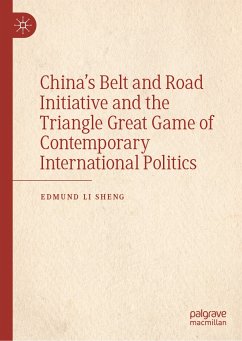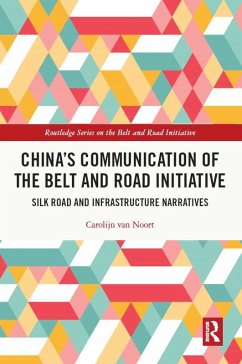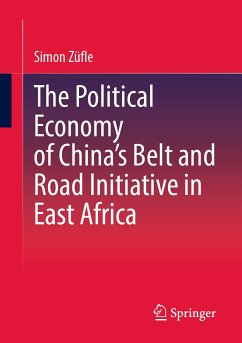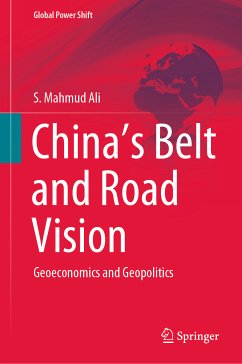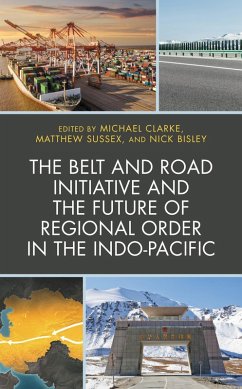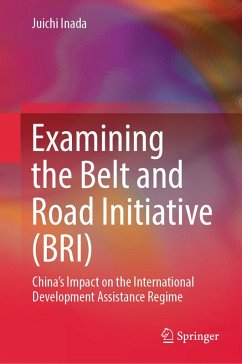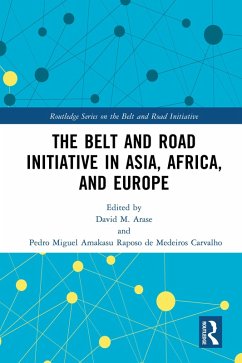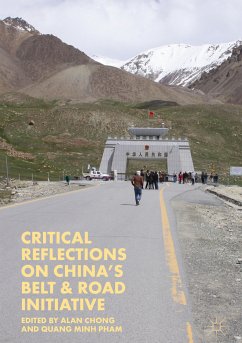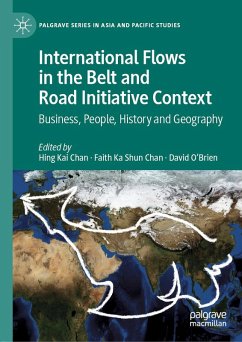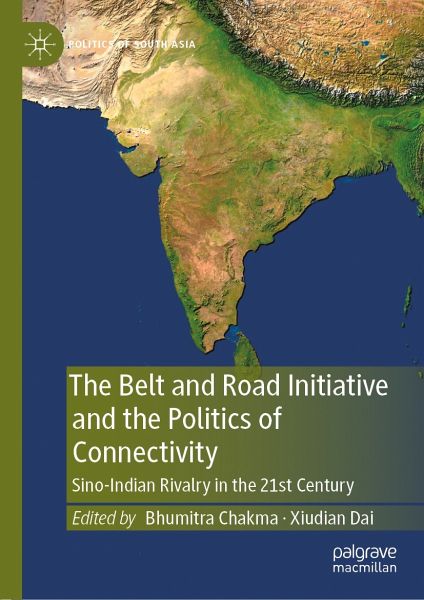
The Belt and Road Initiative and the Politics of Connectivity (eBook, PDF)
Sino-Indian Rivalry in the 21st Century
Redaktion: Chakma, Bhumitra; Dai, Xiudian
Versandkostenfrei!
Sofort per Download lieferbar
72,95 €
inkl. MwSt.
Weitere Ausgaben:

PAYBACK Punkte
36 °P sammeln!
This volume analyses New Delhi's reaction to China's Belt and Road Initiative (BRI) and the rise of politics of connectivity and infrastructure building which has heightened Sino-Indian rivalry in South Asia and the Indian Ocean Region (IOR). It can be evidenced that the BRI has transformed the Sino-Indian dynamics from a 'managed rivalry' to an intense geo-political competition. It is contended that competition is inevitable when two powers rise in the same neighbourhood.The Indian government has opposed the BRI since its inception noting that the 'BRI violates India's sovereignty and territo...
This volume analyses New Delhi's reaction to China's Belt and Road Initiative (BRI) and the rise of politics of connectivity and infrastructure building which has heightened Sino-Indian rivalry in South Asia and the Indian Ocean Region (IOR). It can be evidenced that the BRI has transformed the Sino-Indian dynamics from a 'managed rivalry' to an intense geo-political competition. It is contended that competition is inevitable when two powers rise in the same neighbourhood.
The Indian government has opposed the BRI since its inception noting that the 'BRI violates India's sovereignty and territorial integrity' because one of the flagship BRI projects - the China-Pakistan Economic Corridor (CPEC) - runs through (Pakistan-controlled) Kashmir which India claims to be its own territory. It has consistently maintained that China's 'connectivity initiatives must be based on universally recognized international norms, good governance, rule of law, openness, transparency and equality, and must be pursued in a manner that respects sovereignty and territorial integrity' of other states.
Beyond those stated reservations, New Delhi is concerned about the BRI infrastructure and connectivity projects in the smaller South Asian countries and the Indian Ocean littoral states. India has traditionally viewed South Asia and the IOR as its backyard over which it has historically maintained a position of influence. It is apprehensive that the BRI projects will enhance Beijing's stature and undermine India's influence in the region.
In eleven chapters including Introduction and Conclusion, this book explores the dimensions of the rivalry and analyses the causes, dynamics and implications of an accelerated Sino-Indian competition.
Dieser Download kann aus rechtlichen Gründen nur mit Rechnungsadresse in A, B, BG, CY, CZ, D, DK, EW, E, FIN, F, GR, HR, H, IRL, I, LT, L, LR, M, NL, PL, P, R, S, SLO, SK ausgeliefert werden.



